At Kribi Deepwater Port in Cameroon, a gantry crane over ten meters high is lifting cargo for a 10000 ton cargo ship; In Mbale, Uganda, workers are building local brands in the Central Umale Industrial Park; In Zambia’s Qianbixi Copper Mine, “digital mining” drives technological innovation in the local mining industry
In recent years, China and Africa have complementary advantages and fruitful achievements in industrial cooperation. The cooperation between the two sides aims to move from “quality” to “new” and continuously takes new steps on the road to building a high-level community with a shared future for China and Africa.
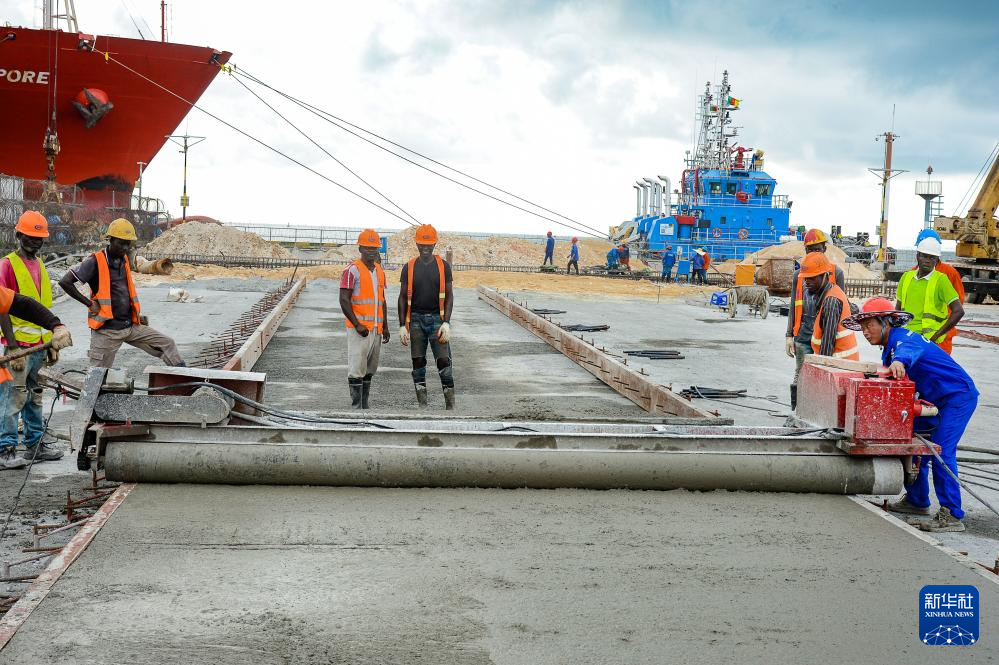 On April 22, 2024, in Kribi, Cameroon, technical personnel worked at the construction site of the Kribi Deepwater Port Phase II project. Xinhua News Agency (Science Popularization Photo)
On April 22, 2024, in Kribi, Cameroon, technical personnel worked at the construction site of the Kribi Deepwater Port Phase II project. Xinhua News Agency (Science Popularization Photo)
Empowering industrialization in Africa
Large machinery roars, transport vehicles shuttle back and forth, and nearly a thousand workers are busy working… Located in the southern region of Kribi, Cameroon, the second phase of the deepwater port project, undertaken by China Harbour Engineering Co., Ltd. (China Harbour), is entering its peak construction period.
On the berth of the first phase of Kribi Deep Water Port, which has been put into operation, a 30000 ton cargo ship from Singapore is docked, and a gantry crane over ten meters high is lifting cargo. “The port of Douala, the largest city in Cameroon, is shallow and can only accommodate ships weighing less than 10000 tons. However, it is not a problem to accommodate cargo ships weighing 100000 tons here!” said local engineer Eric.
It is reported that the Kribi Deepwater Port Phase II project is expected to be completed by the end of this year, and two additional berths will be added at that time. The Kazakh government has also planned 15000 hectares of land near the port for the construction of industrial and logistics parks, which have attracted multiple factories and logistics companies to settle in.
The Kribi Rollabe Expressway, also constructed by China Harbour, has been open to traffic for nearly two years. “This road connects the Kribi deep-water port and major cities in the country, which will greatly promote Cameroon’s industrialization process,” said Emmanuel Enganu Jumensi, Minister of Public Works of Cameroon.
To be rich, first build roads. China has participated in the construction of more than 6000 kilometers of railways, 6000 kilometers of roads, nearly 20 ports, and more than 80 large-scale power facilities in Africa… With the support of the the Belt and Road Initiative, China Africa cooperation in infrastructure construction has yielded fruitful results, and the quality of projects is excellent, playing an important role in Africa’s industrial development and economic transformation.
“Africa’s industrialization started late and had a weak foundation. Only by improving infrastructure, promoting connectivity and economic integration, can Africa carry out large-scale industrial production activities and effectively integrate the sales market of industrial products.” said Costantinos, a professor at the University of Addis Ababa in Ethiopia.
Assist in “Made in Africa”
In the early morning, in the industrial town of Mbale in eastern Uganda, local workers in groups of three or five walked through the gate of the Central Umbale Industrial Park and entered various factories to start a new day of work.
This national industrial park is about 200 kilometers away from the capital of Uganda, Kampala. It is invested and operated by Chinese private enterprise Tiantang Group. Since its launch in March 2018, it has attracted more than 40 enterprises to settle in and created more than 5000 job opportunities for the local area.
Home appliances, daily chemicals, home textiles, building materials, pharmaceuticals, automobile manufacturing… Riding in a park covering thousands of acres, the reporter found that the industries gathered here are closely related to the lives of Ugandan people. “Our original intention in building an industrial park is to help fill the gap in Uganda’s important production areas and reduce consumption costs. Currently, the park has incubated multiple local brands of televisions and smartphones,” said Wang Wentong, General Manager of Tiantang Group.
In recent years, the Diamniaju Industrial Park in Senegal, the Leki Free Trade Zone in Nigeria, and the China Egypt Teda Suez Economic and Trade Cooperation Zone… These cooperation parks, in which China has participated in investment, have played a role in attracting investment from African countries, quickly attracting enterprises to build industrial clusters, forming industrial development advantages, and driving the development of manufacturing in African countries, accelerating local industrialization processes.
David Bahati, Minister of Industry of the Ministry of Trade, Industry and Cooperation of Uganda, said that Chinese enterprises and investors in industrial parks operated in Uganda utilize local resources to develop manufacturing, helping Africa China industrial cooperation to continuously reach new heights, which is in line with the goals of the African Union’s 2063 Agenda. “We look forward to these industrial parks nurturing more local African brands and bringing ‘Made in Africa’ to the world!”
Cultivate modern industrial talents
Entering the production digital control center of the southeast ore body of Zambia’s Qianbixi Copper Mine, the operation of various production processes such as mining, excavation, machinery, and transportation can be clearly seen on the large screen. “Even without going down the well, we can still have a deep understanding of the underground dynamics,” said Mverwa Dean, Assistant General Manager of China Africa Mining Co., Ltd. (China Africa Mining).
Zhongse Nonferrous Mine is a company jointly invested and established by China Nonferrous Mining Group and Zambia United Copper Mine Investment Holding Company to redevelop the Qianbixi Copper Mine, which has been closed for more than ten years. In the deep mining tunnels, the roar of machines is incessant, but this “digital mine” no longer relies heavily on manual underground mining. Instead, it is replaced by an integrated computer control system, which uses digital means to achieve controllable production processes and refined business management, helping frontline workers solve safety production problems.
Faced with a new round of global technological revolution and industrial transformation, the development of new quality productivity has become a key engine for promoting high-quality cooperation between China and Africa. Currently, exchanges between China and Africa in the fields of new technology, new energy, and new industries are becoming increasingly close, which is of great significance in helping to improve and upgrade industrial cooperation between China and Africa, cultivating local modern industrial talents, and promoting sustainable development in Africa.
The Luban Workshop in Rwanda was established in collaboration between Zhejiang Jinhua Vocational and Technical College in China and the Rwanda Institute of Technology. In April this year, 30 local students flew to China to embark on a one-year vocational skills learning journey.
“Electrical automation technology is ubiquitous in various fields of modern industry, and studying this major can contribute to the industrialization development of our country,” said Ishimwe Yasher, a third year student majoring in electrical automation, in an interview with reporters before departure
“The importance of talent in innovative development is self-evident,” said Kenyan scholar and former Deputy Minister of Transport, Garrison Ikiyara. In recent years, China has helped many African countries cultivate industrial and technological talents, helping them transform the demographic dividend into development advantages.
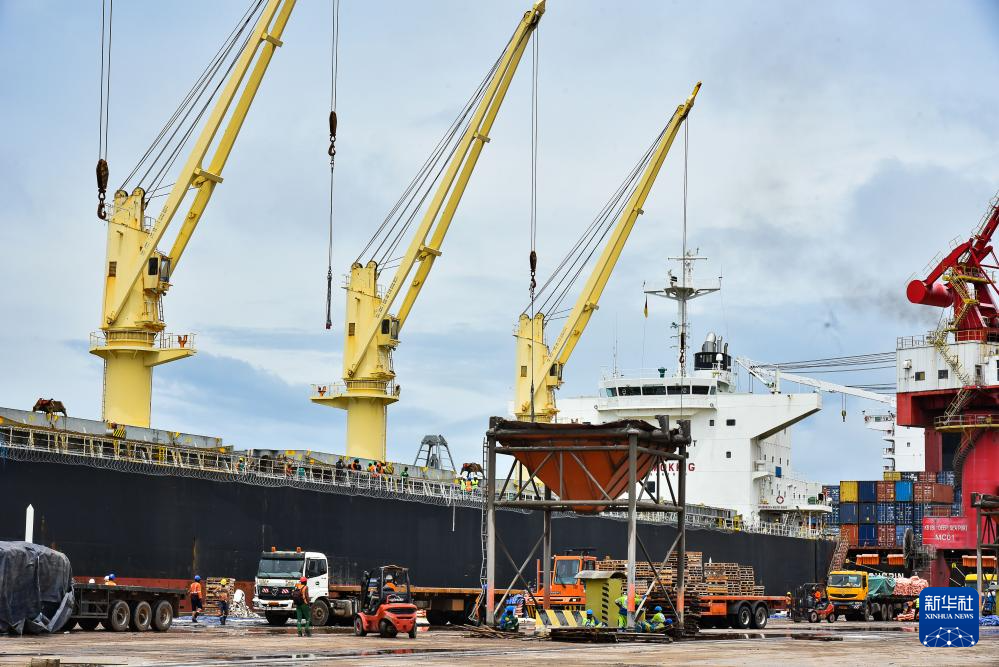 This is the first phase of the Kribi Deepwater Port project, filmed on October 22, 2022 in the southern region of Cameroon. Xinhua News Agency (Science Popularization Photo)
This is the first phase of the Kribi Deepwater Port project, filmed on October 22, 2022 in the southern region of Cameroon. Xinhua News Agency (Science Popularization Photo)
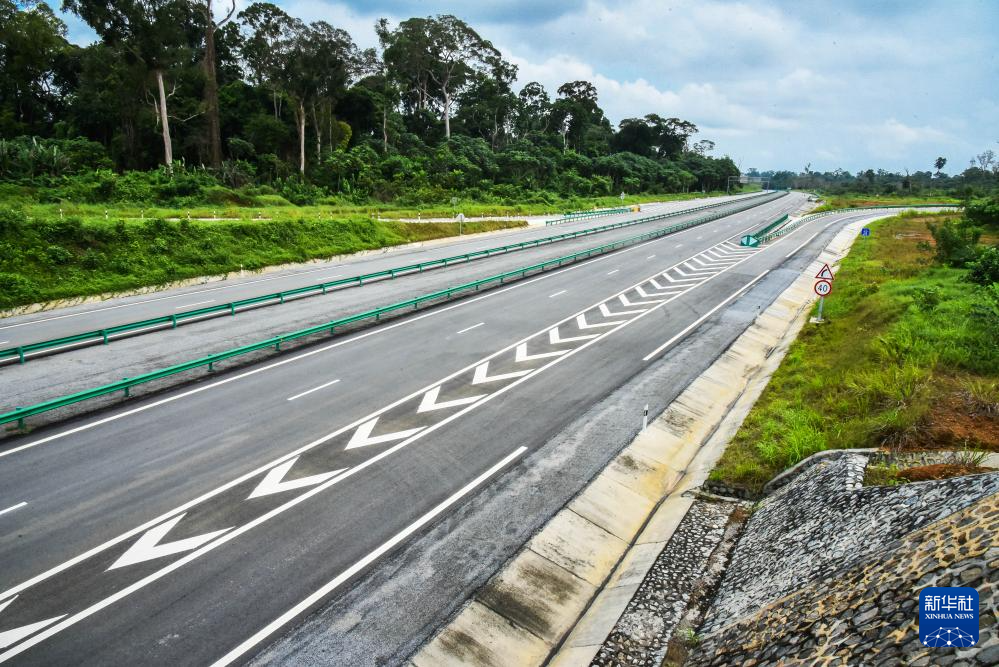 This is a photo taken on July 29, 2022 in Kribi, Cameroon on the Kribi Rolabe Expressway. Xinhua News Agency (Science Popularization Photo)
This is a photo taken on July 29, 2022 in Kribi, Cameroon on the Kribi Rolabe Expressway. Xinhua News Agency (Science Popularization Photo)
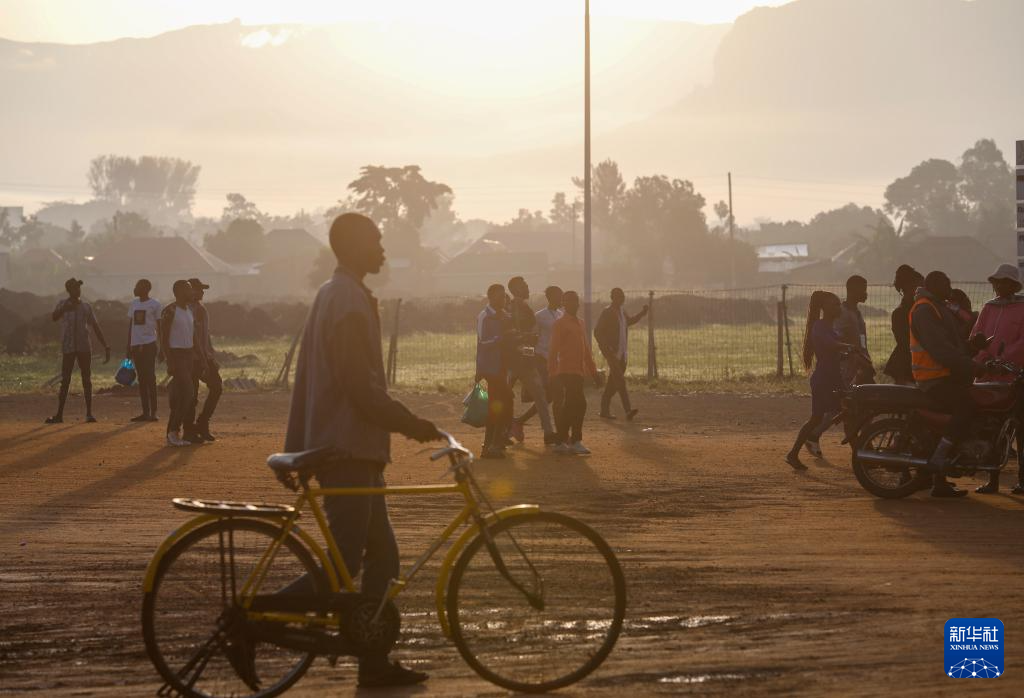 On April 5, 2024, in Mbale City, Uganda, people went to work at the Central Umale Industrial Park. Photo by Xinhua News Agency reporter Li Yahui
On April 5, 2024, in Mbale City, Uganda, people went to work at the Central Umale Industrial Park. Photo by Xinhua News Agency reporter Li Yahui
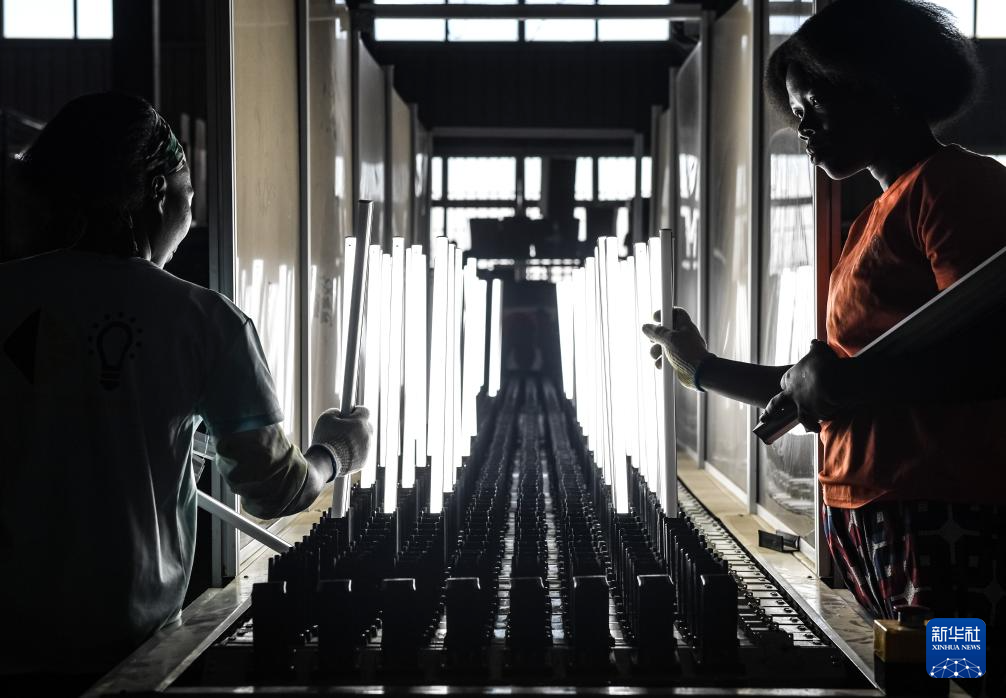 On April 5, 2024, two workers conducted product quality inspection in the workshop at the Central Umbale Industrial Park in Mbale, Uganda. Photo by Xinhua News Agency reporter Li Yahui
On April 5, 2024, two workers conducted product quality inspection in the workshop at the Central Umbale Industrial Park in Mbale, Uganda. Photo by Xinhua News Agency reporter Li Yahui
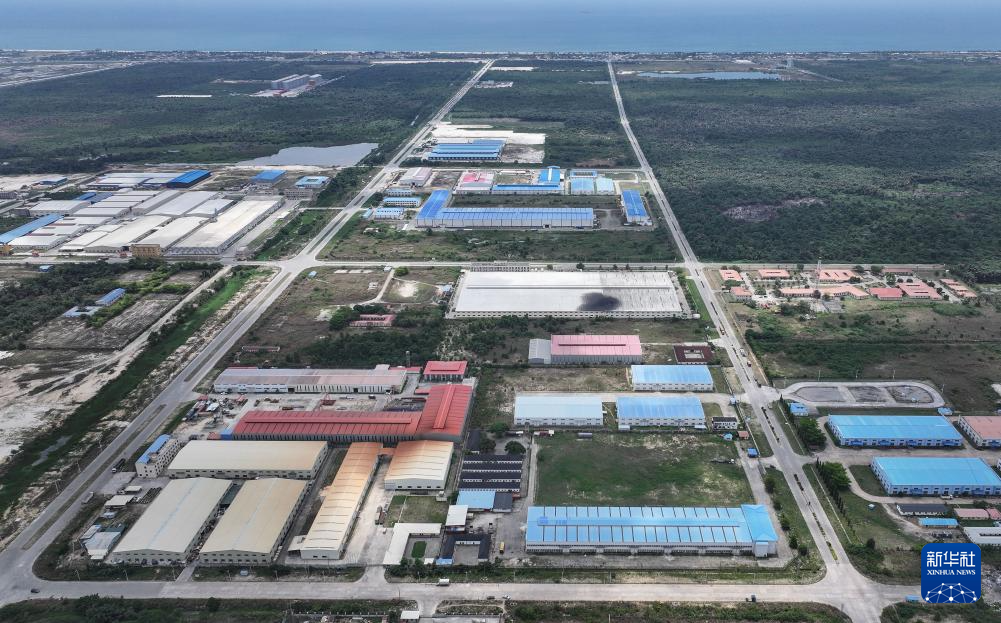 This is a drone photo taken on March 1, 2024 in a corner of the Leki Free Trade Zone in Lagos, Nigeria. Photo by Xinhua News Agency reporter Han Xu
This is a drone photo taken on March 1, 2024 in a corner of the Leki Free Trade Zone in Lagos, Nigeria. Photo by Xinhua News Agency reporter Han Xu
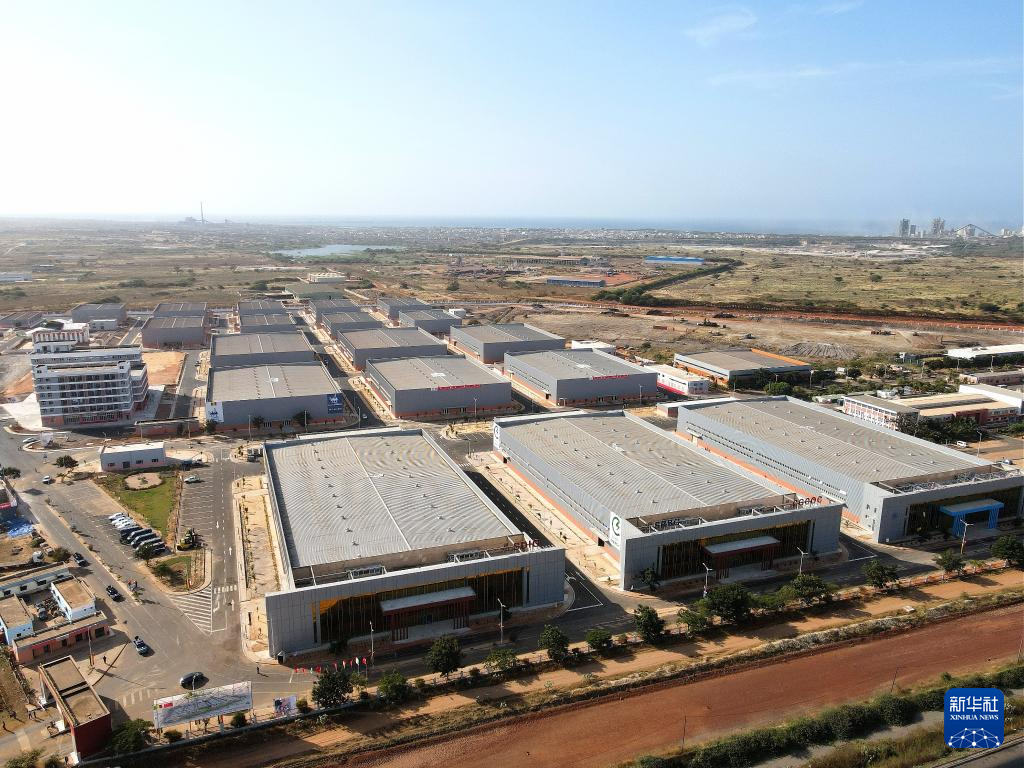 This is a video screenshot taken on December 4, 2023, of the second phase of the Diamniaju Industrial Park project in Senegal. Xinhua Social Development (provided by Sichuan Road and Bridge Group)
This is a video screenshot taken on December 4, 2023, of the second phase of the Diamniaju Industrial Park project in Senegal. Xinhua Social Development (provided by Sichuan Road and Bridge Group)
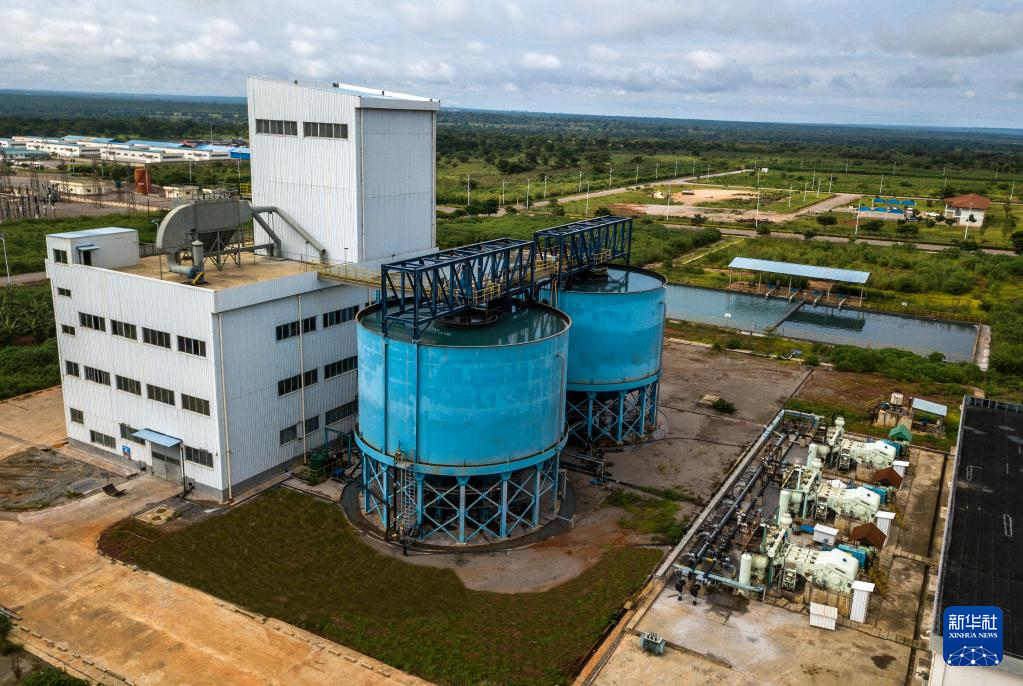 This is a corner of Zhongse Africa Mining Co., Ltd. captured on June 3, 2024 in Kitwe, Copperbelt Province, Zambia. Xinhua News Agency (provided by Zhongse Africa Mining Co., Ltd.)
This is a corner of Zhongse Africa Mining Co., Ltd. captured on June 3, 2024 in Kitwe, Copperbelt Province, Zambia. Xinhua News Agency (provided by Zhongse Africa Mining Co., Ltd.)
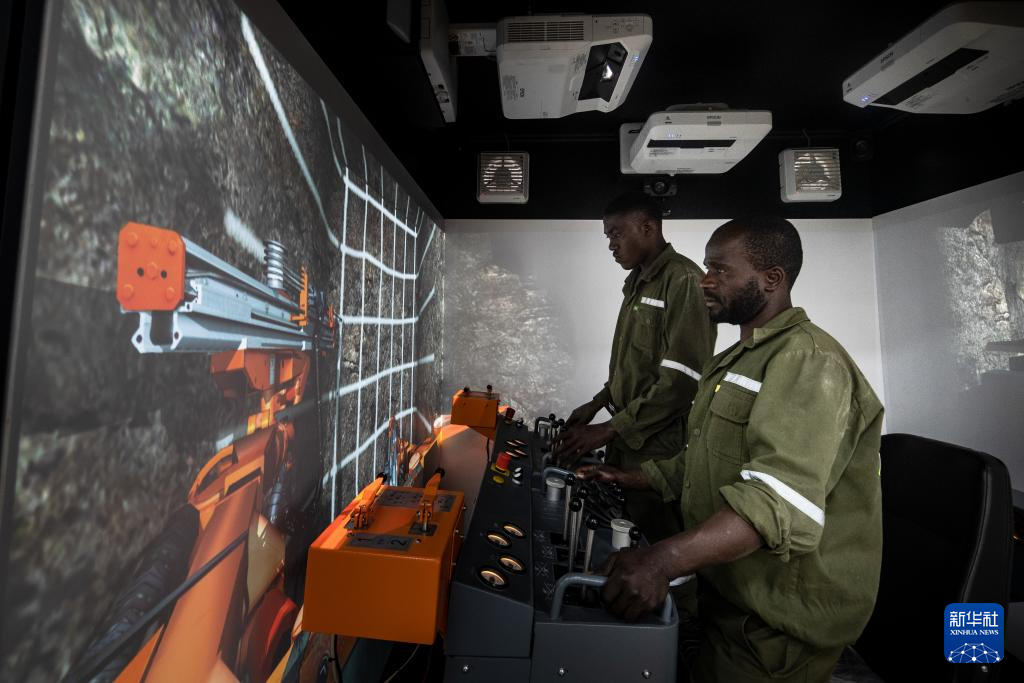 On June 3, 2024, in Kitwe, Copperbelt Province, Zambia, Zambian employees participated in the training through virtual technology equipment at the Mine Skills Training School of Zhongse Non Mining Company. Xinhua News Agency (provided by Zhongse Africa Mining Co., Ltd.)
On June 3, 2024, in Kitwe, Copperbelt Province, Zambia, Zambian employees participated in the training through virtual technology equipment at the Mine Skills Training School of Zhongse Non Mining Company. Xinhua News Agency (provided by Zhongse Africa Mining Co., Ltd.)
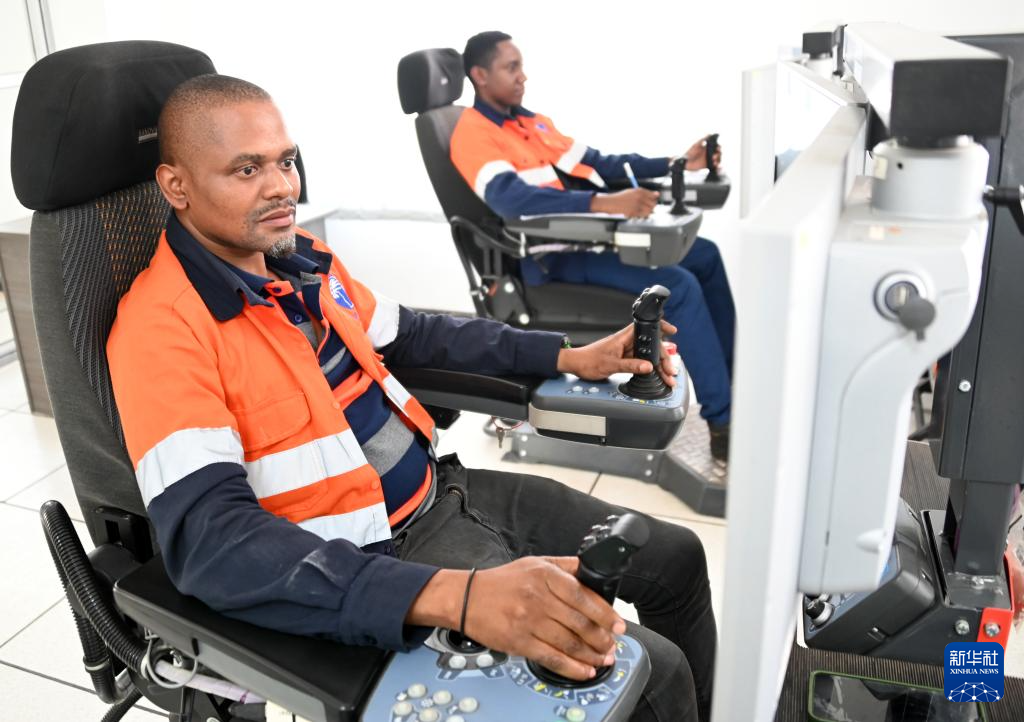 On June 4, 2024, in Kitwe, Zambia’s Copperbelt Province, Zambian employees remotely operated underground mining equipment production operations at the digital control center for the production of the southeast ore body at the Qianbixi Copper Mine. Xinhua News Agency (provided by Zhongse Africa Mining Co., Ltd.)
On June 4, 2024, in Kitwe, Zambia’s Copperbelt Province, Zambian employees remotely operated underground mining equipment production operations at the digital control center for the production of the southeast ore body at the Qianbixi Copper Mine. Xinhua News Agency (provided by Zhongse Africa Mining Co., Ltd.)
